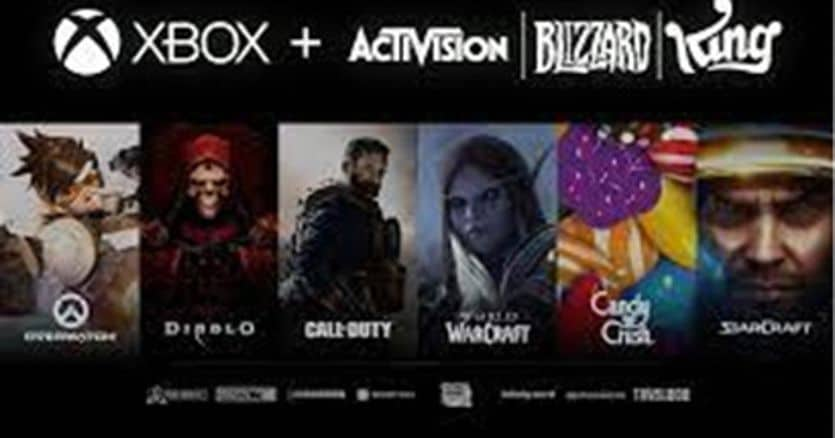Europe’s green light is a victory for Microsoft after the UK’s top competition authority blocked the deal in April. The agreements signed with Nvidia and before that with Nintendo have perhaps helped to push towards approval. However, the EU’s decision comes despite opposition from other groups, mainly the Japanese Playstation, which has accused Microsoft of having misled the regulators of its promises to give access to Call of Duty to other platforms. However, the game is not over. He now expects the Federal Trade Commission (FTC) in August. But to better understand what’s at stake when you say yes to a 60 billion euro operation, you need to understand what the terms of Europe’s yes are.
The question of cloud computing technologies.
First, the EU found that Microsoft “would have no incentive to refuse distribution of Activision games to Sony” and that “even if Microsoft decides to withdraw Activision games from the PlayStation, this would not significantly harm competition in the console market”. As we had already explained, the problem is not the possible monopoly on the console market which, moreover, is dominated by its competitor Playstation. But the cloug gaming, i.e. the game market “transmitted” in streaming that enters smartphones, PCs and consoles without the need for dedicated hardware and through all-you-can-eat subscription forms. In this context, Microsoft already represents about 60-70% of global cloud gaming services and being the owner of the PC operating systems of the global cloud computing infrastructure (Azure and Xbox Cloud Gaming) it can certainly play a primary role. floor.
What are the remedies for the acquisition
Unlike the UK Antitrust, the European Commission has defined remedies to allow the acquisition. Microsoft to offer a ten-year free license to consumers in the European Economic Area, which will allow them to stream, via any cloud game streaming service of their choice, all current and future Activision Blizzard PC and console games for which are licensed. In addition, cloud providers will also be offered a free license to stream these games in EU markets. Essentially, the European Commission required Microsoft to automatically license popular Activision Blizzard games to competing cloud gaming services
What does it mean for consumers and gaming players?
That if you are a gamer and have purchased an Activision Blizzard game you can decide to use “any cloud game streaming service and play it on any device with any operating system”. It means that theoretically even if you own a Mac (Apple) and therefore not a PC (Windows) or, for example, a laptop that uses Linux as an operating system and you have the game, you can use the streaming platform you prefer. Similarly, on the supply side, cloud providers such as Nvidia, Amazon or Google will be offered a free license to stream these games in EU markets. It means that they won’t have to pay to broadcast the games of the new video game giant.

The weight of Microsoft’s deals with other players
Recall that Microsoft has signed cloud gaming deals with Boosteroid, Ubitus and Nvidia to allow Xbox PC games to run on these rival cloud gaming services. A similar deal with Nintendo was announced in December. To date, no games made by Activision Blizzard are available on cloud platforms, so the European Commission hopes the proposal will increase competition. It must also be said that for now the numbers of cloud gaming are limited but growing. Cloud gaming means playing without dedicated hardware. If to access popular content such as Call of Duty (Activision) players were forced to stay within the PC-Xbox world then the damage to the competition would have been evident. So this eventuality at least in theory is defused.
